This site is part of various affiliate programs. Links may give us a small compensation for any purchases you make, at no additional cost to you. Please read the disclaimer policy for full details.
A Samsung TV where the top half of the screen has gone darker than it should has three possible causes: backlight failure; T-Con board failure / LVDS cable has come loose; software glitch causing the menu background not to fade.
All of these causes are fixable by you at home, although some are easier to sort out than others.
In this guide, I’ll cover every possible fix for a Samsung TV that’s dark on top, and I’m very confident that you can use this to get your TV back up and running again.
Why Is My Samsung TV Dark On Top?
| Reason | Fix |
|---|---|
| Software Glitch | Cold booting or power cycling your TV can often fix issues stuck in the flash memory. |
| Smart Hub Glitch | The dark gradient on your Smart Hub that appears when your TV comes on can glitch and stay on screen. Switch off the Smart Hub to fix this. |
| Pulse Width Modulation (PWM) Problems | Switch the PWM settings to 100 in the Service Menu as this could be glitching. |
| T-Con/Backlight Failure | A loose T-Con connection or failing backlight can give a dark shadow on any part of your screen, but can be fixed by opening up your TV. |
If the top half of your Samsung TV gets darker over a period of days and weeks, then this indicates a failing backlight, but if it suddenly goes dark and stays at the same level, it could just be an issue with the Smart Hub that can be fixed in 30 seconds.
I’ll cover all of the possible fixes below.
1. Switch Off Smart Hub
A very common cause of dark gradients appearing at the top of Samsung TVs is caused by some kind of software issue with the Smart Hub.
It seems that the initial dark band that appears to help highlight your menu items and TV channels is not cleared after a few seconds as it should be, but instead gets “stuck” to the top of your screen.
The quickest way to solve this is to simply turn off or reset your Smart Hub, but this is really only an option on older Samsung TVs – newer models don’t have the option to fully disable the Smart Hub.
For older Samsung TVs:
- Go to Settings.
- Then Smart Hub.
- And use the Reset Smart Hub option.
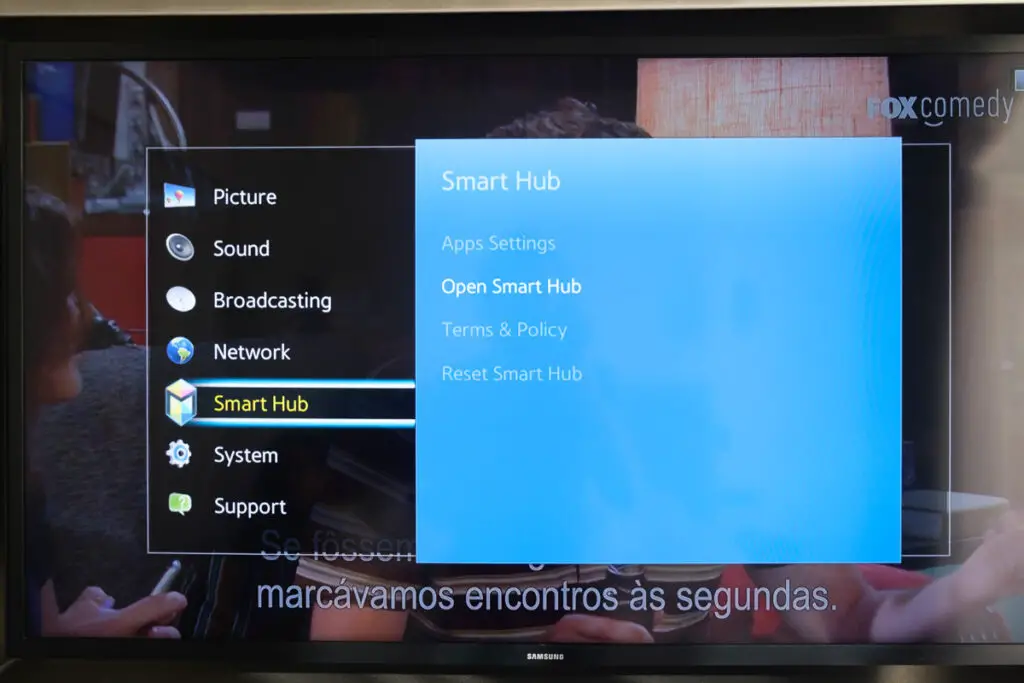
If the option is greyed out as above, then you have to first enable this from the service menu. More details are in the guide to what to do if the broadcasting settings are greyed out.
For newer Samsung TVs:
- Open All Settings.
- Then go to either General & Privacy or General, and choose Start Screen Options or Smart Features.
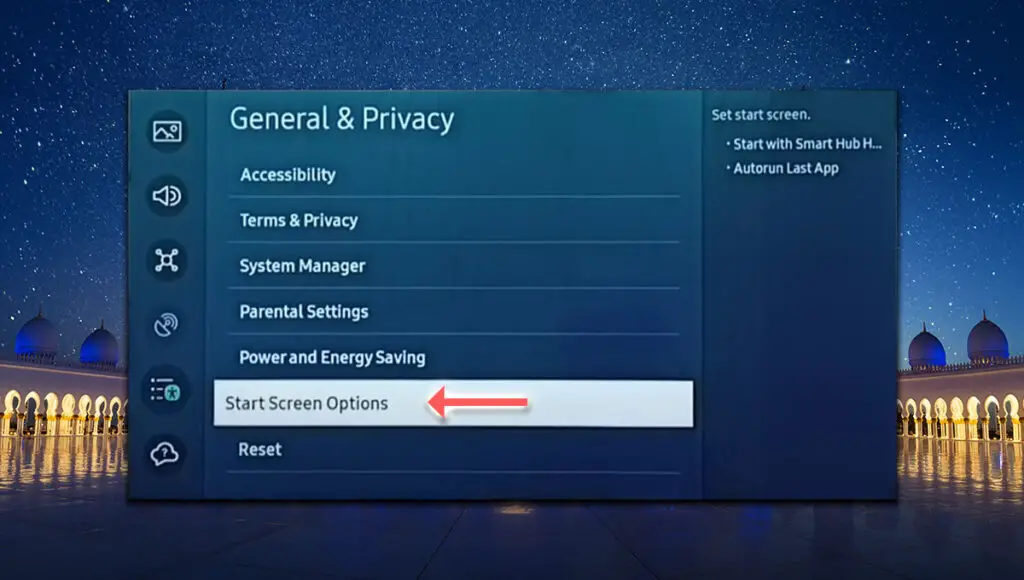
- Then select Autorun Last App, so that the Smart Hub doesn’t load automatically when you turn your TV on.
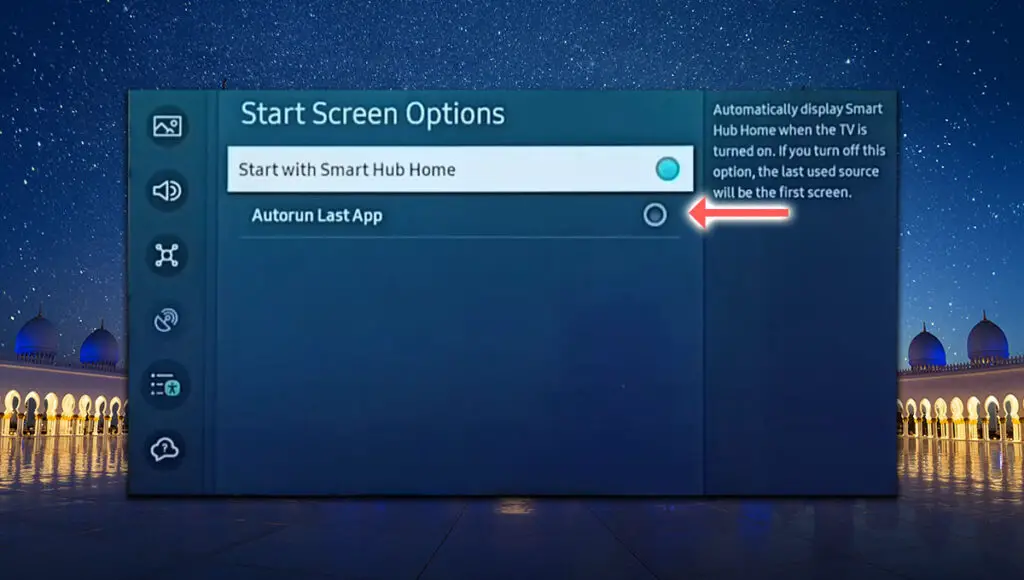
If this hasn’t helped, then the next step is to try cold booting or power cycling your TV.
This is quick and painless and won’t cause you to lose any of your saved settings.
- Switch off and unplug your TV.
- Hold down the physical power button on the TV for at least 15 seconds.
- Wait for at least 30 minutes for any residual power to drain from the TV’s capacitors (which are capable of storing charge for several minutes).
- Plug your TV back in and try switching it on. You should see a red light if you have been successful.
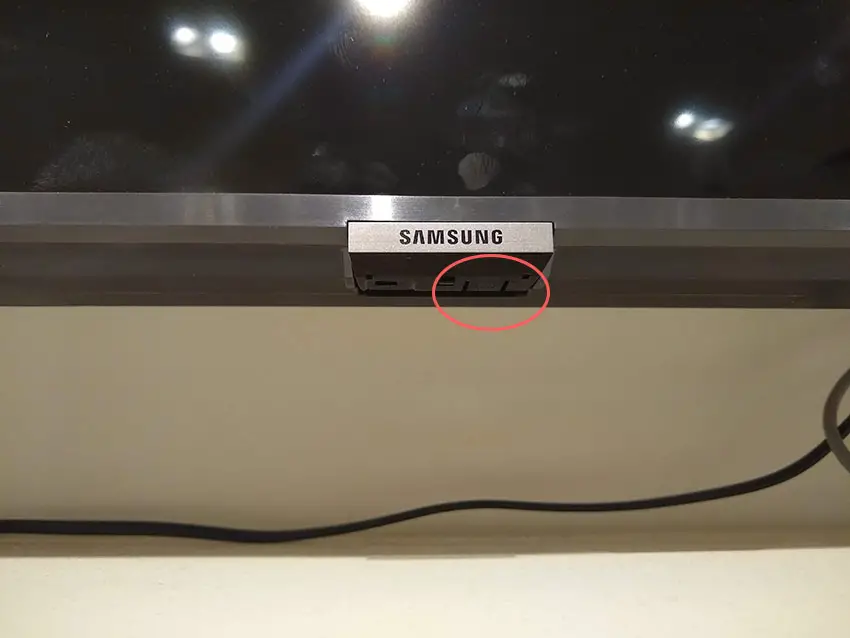
Make sure you do wait for the full 30 minutes before plugging your TV back in – you would be surprised how long the components within your TV can hold a charge, and you want to make sure it has fully reset.
Although this seems a very basic step, don’t overlook it because, in the vast majority of cases, a simple soft reset fixes most issues.
2. Remove Your External Connections
There’s a strong possibility that a poorly seated or damaged cable is not sending a full signal to your screen.
This comes down to either a:
- Faulty HDMI cable with a break in it
- Damaged HDMI port with broken pins
- Poor HDMI connection where the cable and connector are not fully making contact
It’s also widely reported that some kind of software glitch with Samsung TVs causes them to display a black band on the top half of the screen if the HDMI device is not sending the “correct” signal for the TV.
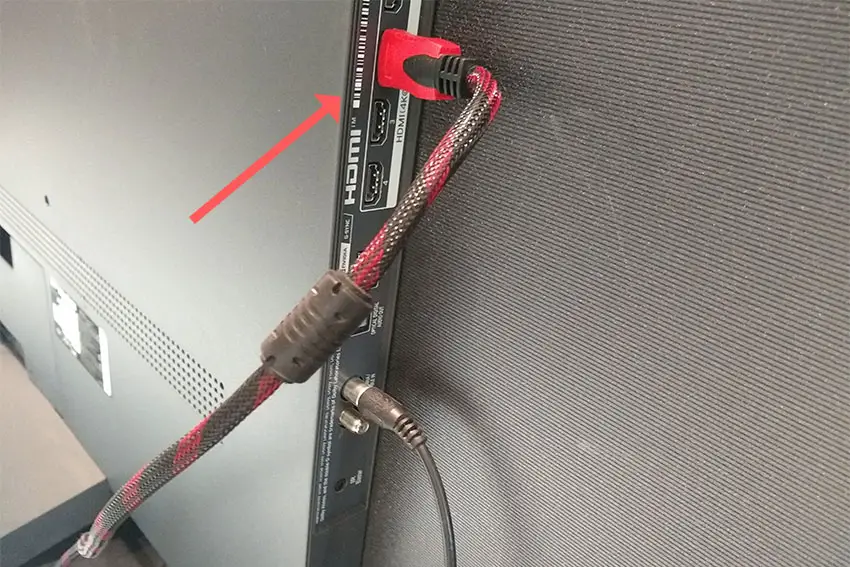
To check your HDMI and other cables:
- Switch off your TV.
- Remove any HDMI or other physical cables connected to the back of your TV.
- If you have any compressed air, use that to clean the contacts both of the cable and in the connector on the TV. If you don’t have compressed air, then blow gently on them.
- Firmly push the cables back into their slots on the TV.
- Switch your TV back on again.
If that hasn’t fixed the problem, then try using a different HDMI input. Most TVs have 3 or 4 HDMI ports.
If you have one that is on a different part of the TV then that would be the best one to try, as this should have a separate connection to the TV’s main board.
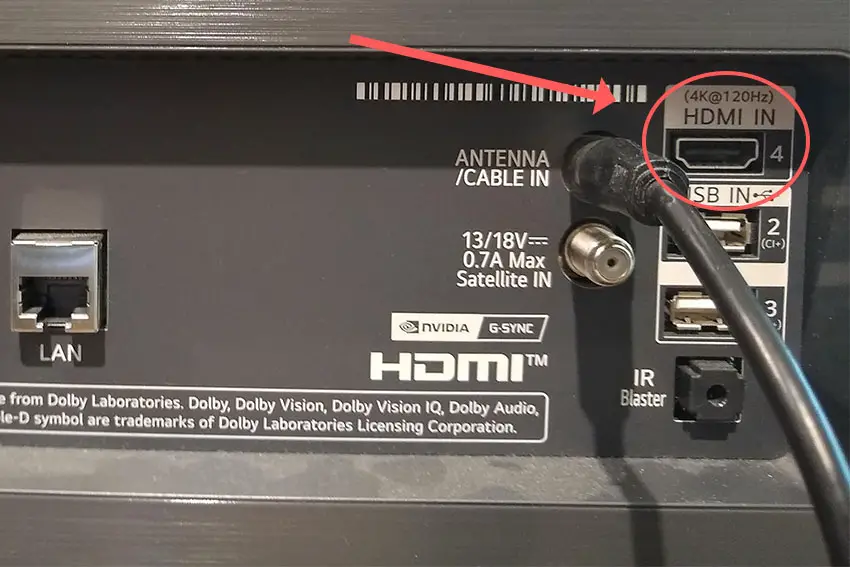
Plug your HDMI cable into the new port, note the number next to it, and then choose this HDMI input on your TV, by using the Input or Source button on your TV remote or the Input or Menu button on your TV itself.
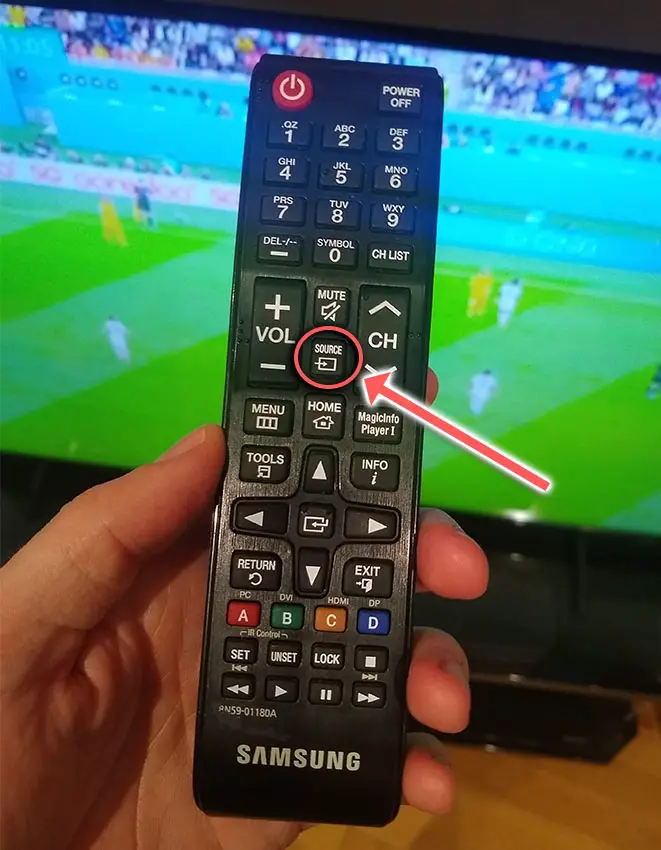
Most Samsung TVs come with the option to run an HDMI self-test, which can check that HDMI cables are working properly. Note that this only works on cables less than 2m long.
For TVs made before 2021, set your TV’s source to the HDMI channel you want to test, then go to Settings -> Support -> Self diagnosis -> Signal information -> HDMI cable test -> Start test.
For TVs made after 2021, go to Settings -> Device care -> Self diagnosis -> HDMI troubleshooting and choose the HDMI connection you want to test.
You can also try removing all external devices, including those connected by Bluetooth and any coaxial or signal cables so that the TV only has a power cable going into it.
When you turn your TV on, pull up the on-screen menu to see if the dark band on top of your screen is there. If it is, this means that your external connections are fine and the problem is located within the hardware of your TV.
If the brightness level is now correct, then try re-seating your HDMI and other cables one by one, until you find the damaged cable that needs replacing.
3. Update Your Firmware
Software and firmware issues have been known to cause problems with the display on Samsung TVs.
Because the dark section on top of your screen is likely to be software-based, updating the firmware can possibly remove it.
Smart Samsung TVs support auto-updating of firmware, but you can’t assume that this is turned on for you.
To check that auto-updating is on for firmware/software on your Samsung TV over Wi-Fi:
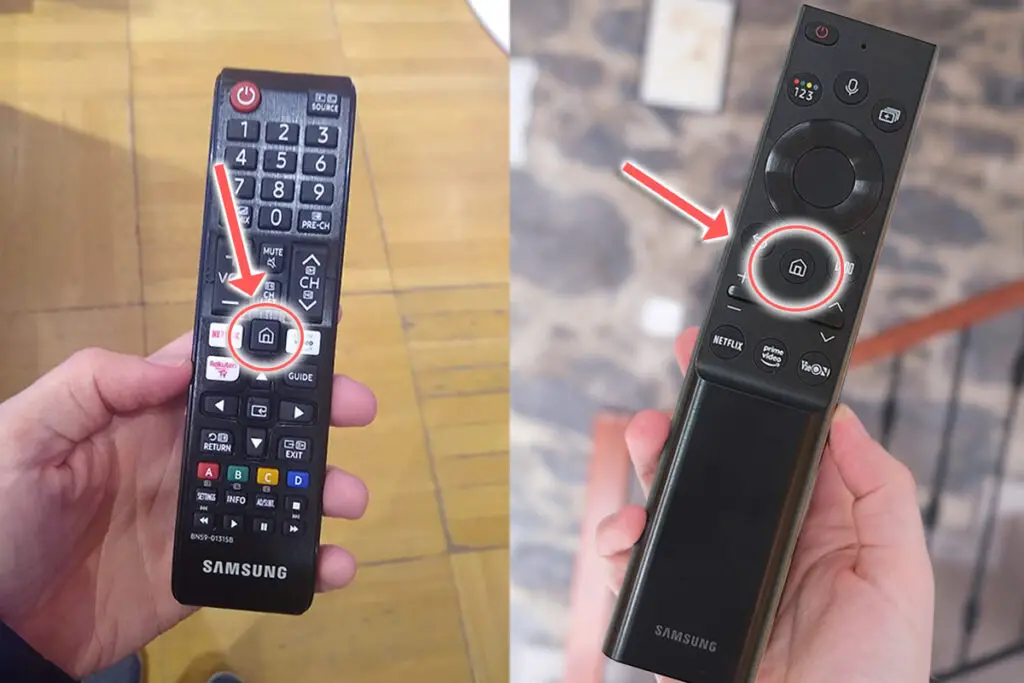
- Press the Menu or Home button on your remote and go to Settings.
- Click Support.
- Then Software Update.
- Agree to any terms and conditions that may pop up, then switch on Auto Update.
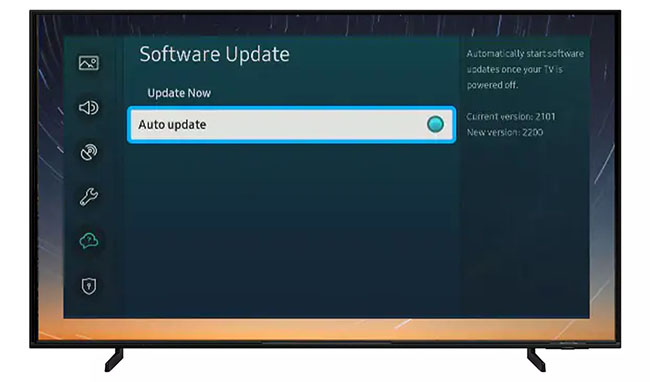
For older Samsung TVs, you’ll need to update the firmware by USB. To do this:
- Press the Menu or Home button on your remote and go to Settings.
- Go to Support.
- Then Contact Samsung or About This TV.
- Take note of the Model Code and Software Version currently installed.
- Go to Samsung’s Support site and enter your model number.
- Select Manuals & Downloads and look for the newest firmware version.
- If this Firmware Version is later than the version you noted was installed on your TV, then download it, along with the Firmware Update User Manual which will give you full instructions on how to install your update.
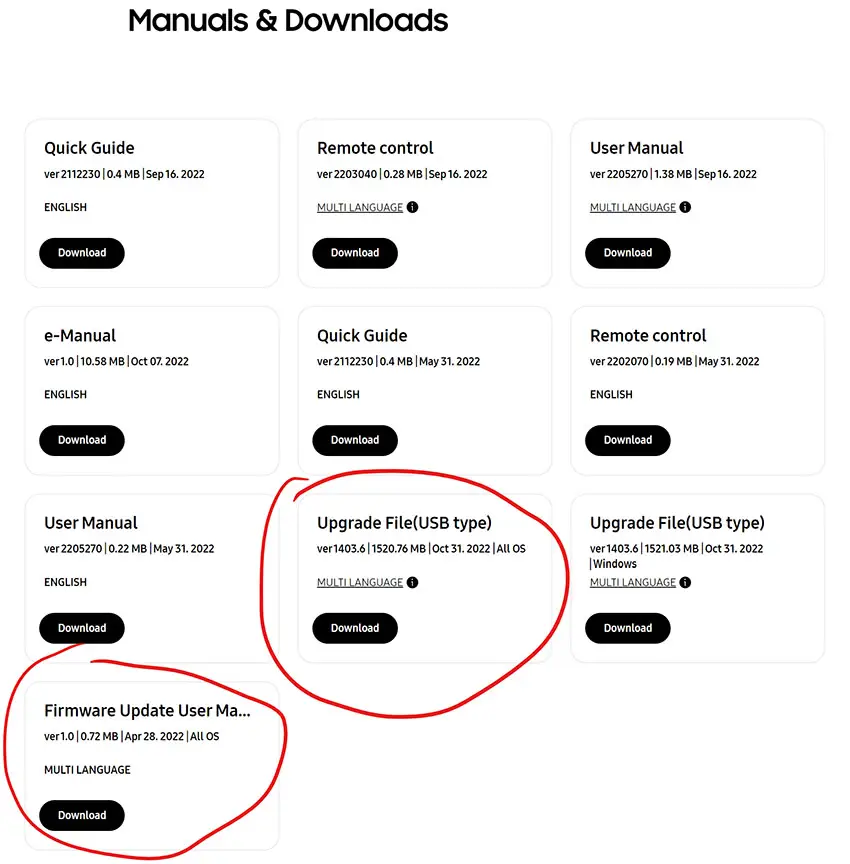
4. Factory Reset Your Samsung TV
Returning your TV back to its factory settings is a more extreme step, as it will delete any personalization features, downloaded apps, or connected devices, but it’s the best solution if you have a grey band on the top of your TV caused by the menu background not fading.
To factory reset a Samsung Smart TV:
- Press the Menu or Home button on your remote and go to Settings.
- Then General & Privacy.
- And Reset.
- Enter your PIN, which by default is 0000 (four zeroes) for Samsung.
- Then select one final Reset in the popup.
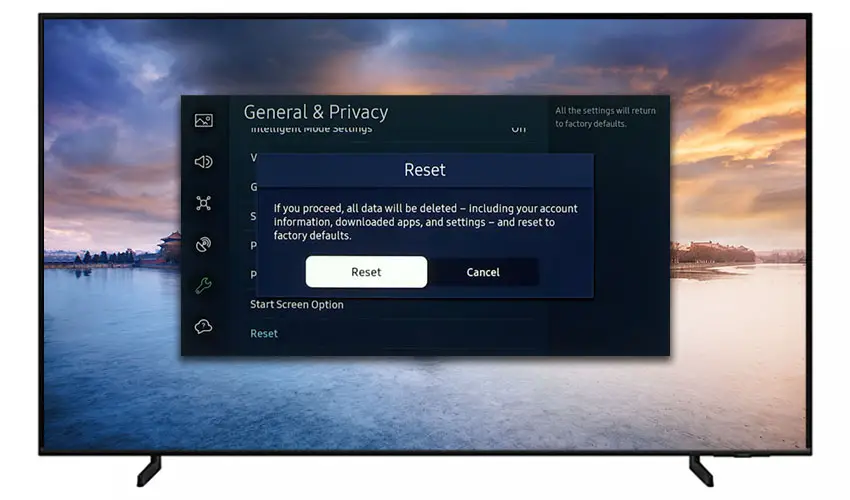
Samsung has provided a video of these steps in the video below.
If your Samsung remote is not working, then you can get to the same menu items by using the physical Menu button that is most likely underneath your Samsung TV’s logo, next to the Power button.
Press this and use the Volume + and – or Channel + and – depending on the model to follow the steps above.
That should brighten up your screen without you having to delve into hardware problems, but just in case you still have a problem then this will be caused by the backlights, which we will look at next.
5. Adjust PWM and Other Settings in the Service Menu
Warning: changes in the Service Menu cannot be reset without changing your main board, so any changes are at your own risk.
The service menu on Samsung TVs lets you access areas designed for TV engineers.
You have to tread carefully here, but there are some options here that are worth trying if you’re having brightness issues with part of your screen. This is only worth trying if your dark section on the screen is caused by the backlight, not by a software-related dark gradient.
To access the Samsung TV service menu:
- Switch your TV off.
- Enter one of the below button sequences using your remote:
- Info + Settings + Mute + Power
- Mute + 1 + 1 + 9 + Power
- Mute + 1 + 8 + 2 + Power
- Sleep + P.STD + Mute + Power
- P.STD + Menu + Sleep + Power
- Display/Info + P.STD + Mute + Power
- Display/Info + Menu + Mute + Power
- Your TV will start up and show the Service Menu.
- Follow the menu options SVC -> Other Setting -> CAL Data Restore.
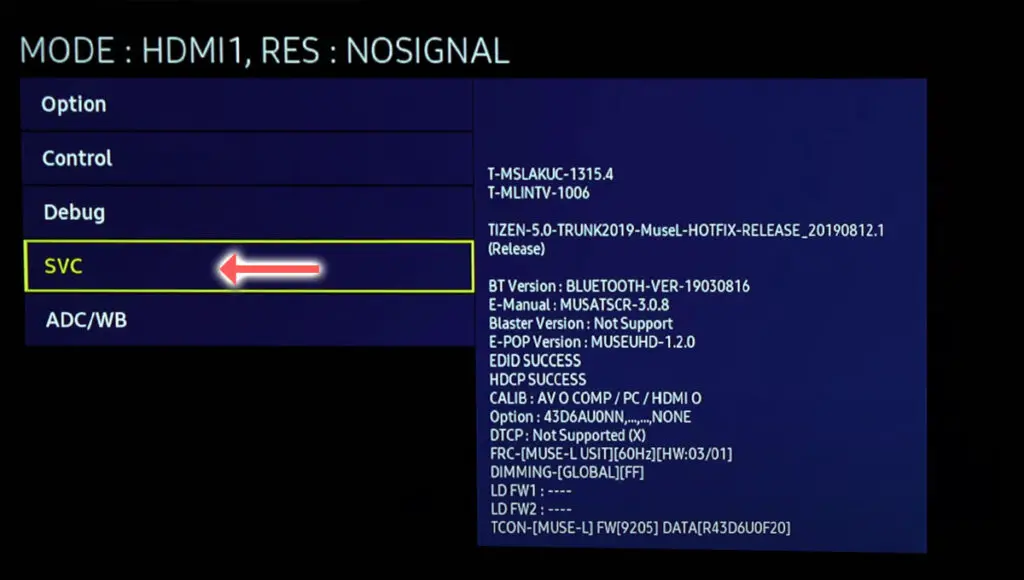
- Press OK to skip the USB prompt, then back up to the main Service Menu by using Return on your remote.
- Scroll to Advanced, which will have now appeared.
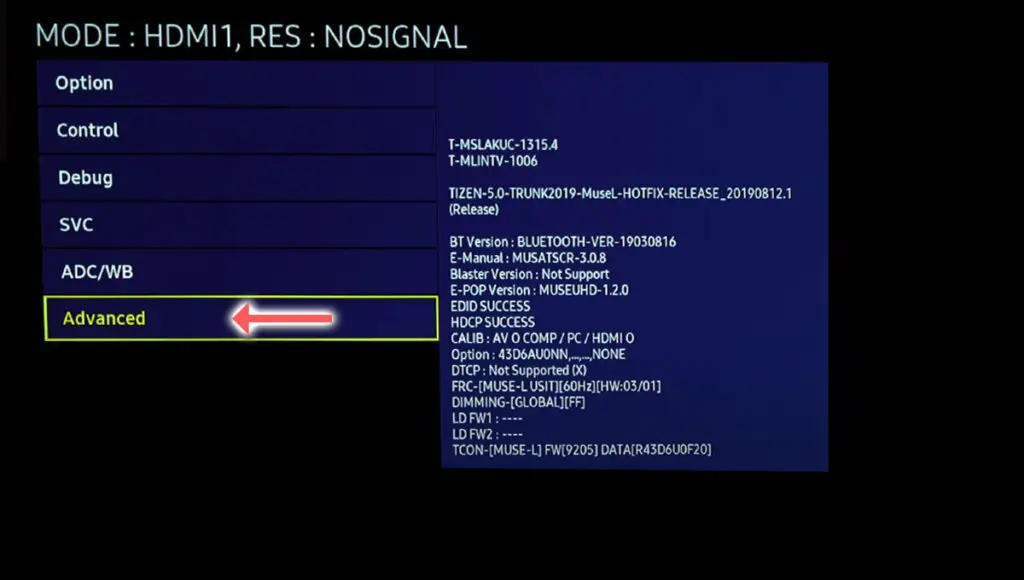
- For older Samsung TVs, press 0000 (four zeroes) on the number pad. If you are using a Frame TV or newer model with the Bluetooth remote, then press and hold the Volume + button for 5 seconds.
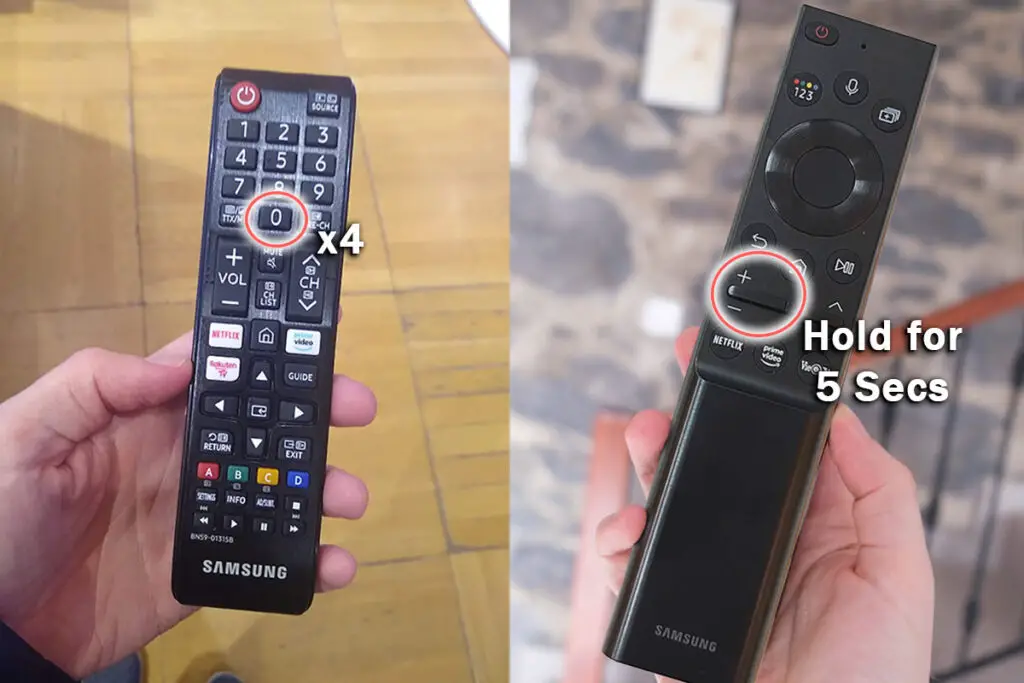
- Go to Picture_2D, which will now appear on the main menu.
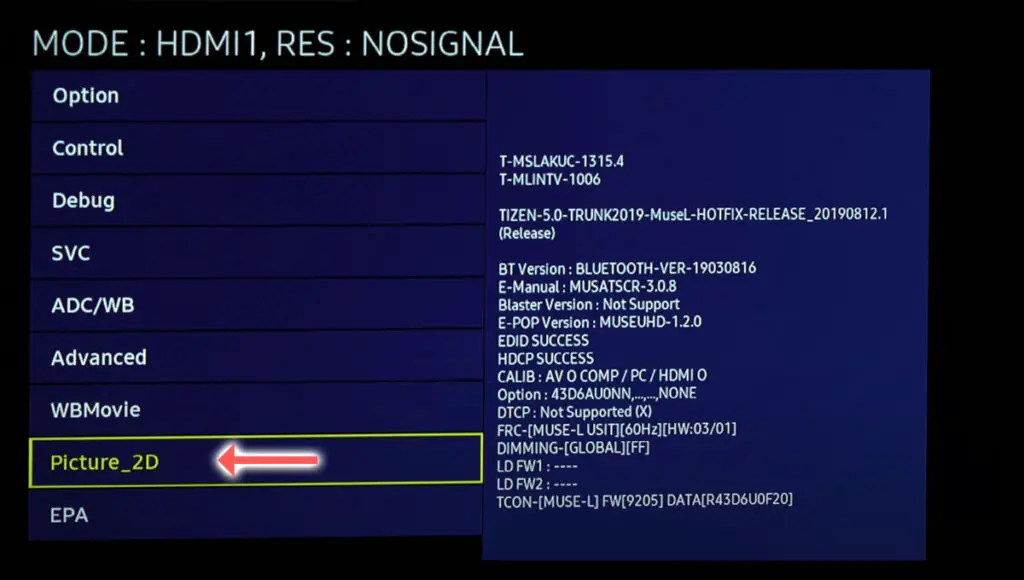
- Then go to SubSetting.
- Change all five of the PWM settings to 100. This will effectively disable Pulse Width Modulation (PWM), which is the cause of your TV getting brighter and dimmer according to each scene of your movie.
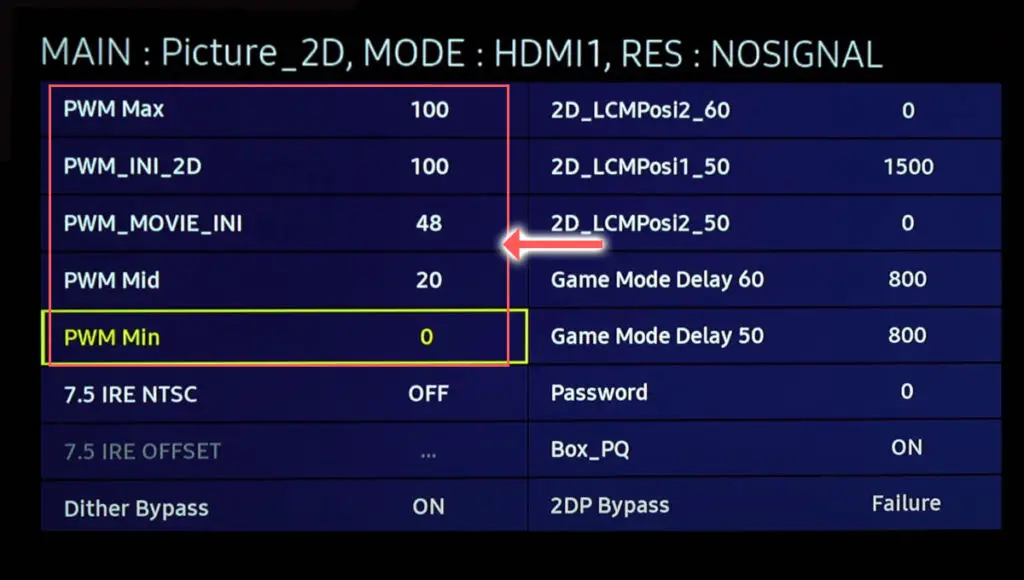
You can see these steps in the video below.
Switching all of these PWM settings to 100 will stop your Samsung TV from being able to change its backlight brightness independently, but you should note that firmware updates are likely to reset these, so you may have to come back into the Service Menu to redo this.
Depending on your model, you might instead see Local Dimming options here. In this case, change Local Dimming to 1 and restart your TV.
6. Samsung TV Top Half Screen Darker T-Con Issue
The top half of your screen being darker on a Samsung TV is often a sign that there is a failure of the LVDS cable connecting the T-Con board to the display panel itself.
The Timing Control (T-Con) board is a small PCB board that drives your TV’s panel, sending the signal to each pixel row of your screen using internal clocks to keep each row in sync.
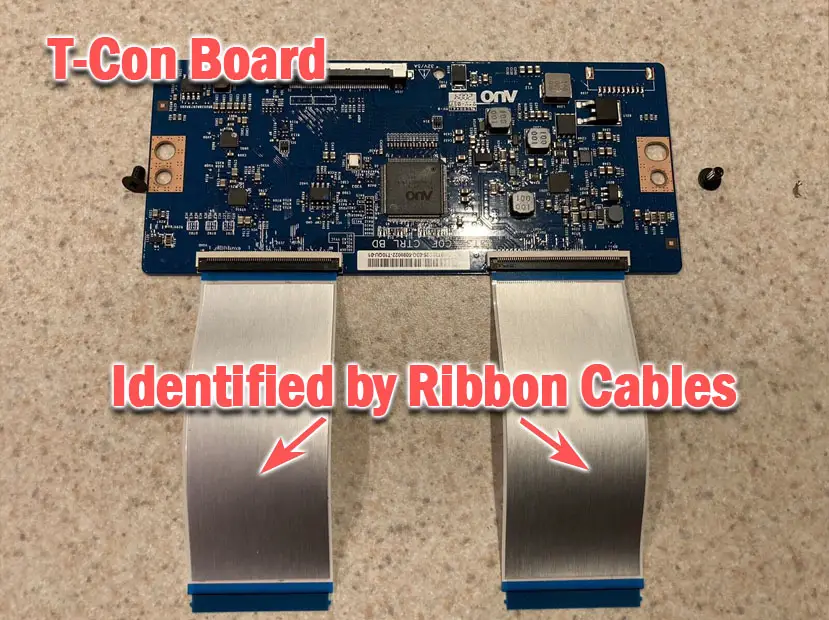
The Main Board is a larger PCB where you plug your HDMI and other connectors into. This does a lot of the work of translating the input into signal, which then goes to the T-Con board.
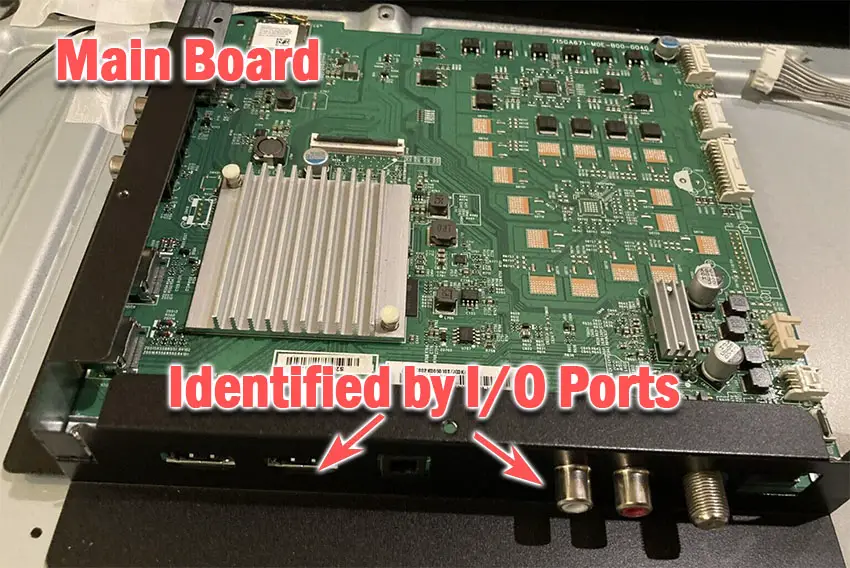
The Power Board is where you plug in your power cable, and it converts your home electricity supply into a voltage and current that your TV can use.
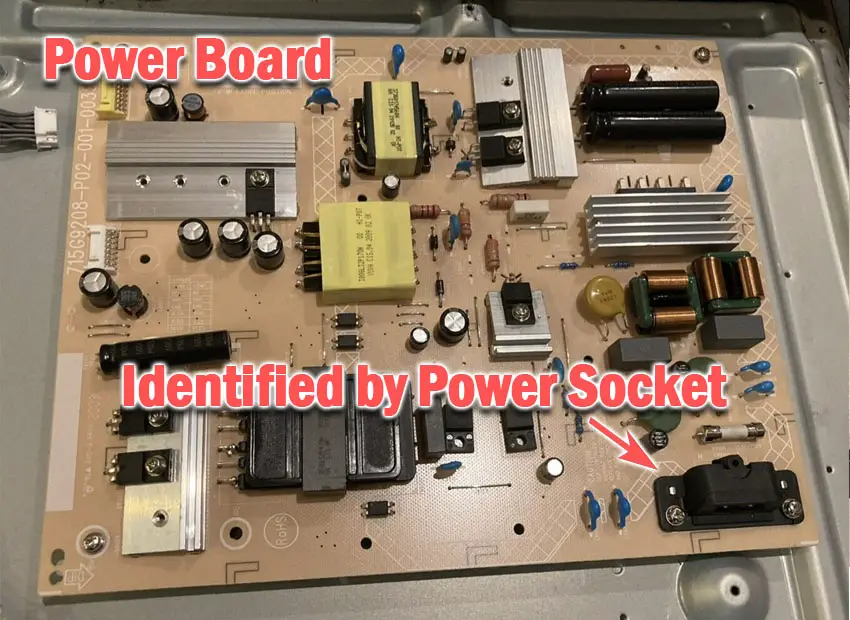
Either the cable connectors themselves can come loose or get covered in grime or dust, preventing a clean contact or components on the boards can fail, meaning they don’t power the backlight sufficiently or cannot provide a constant picture signal.
To access the boards, first remove the back panel. If you’re not confident doing this, then now is the time to get an expert in. Otherwise:
- Unplug your TV, hold down the power button, and wait for at least 30 minutes. There are large capacitors in the power board for the backlight and these can hold charge for an extended period of time.
- Place your TV face down on a large table or workbench. Make sure there is nothing that can scratch the screen on your work surface.
- Ground yourself.
- Open your TV by unscrewing the screws in the back panel. It should come apart in two pieces: front and back.
- Put the back panel somewhere out of the way and take a look at the circuit boards that have been revealed.
- You will see a T-Con panel for translating the signal into a TV picture, a power board, and a main board.
See how to open a Samsung TV in the video below.
It’s a good idea to start your investigation with the T-Con board, as one or more of the internal clocks failing is a regular cause of TV screen problems.
The position of the boards will vary by model, but the T-Con board can be identified by the ribbon cables connecting it to the TV’s panel.
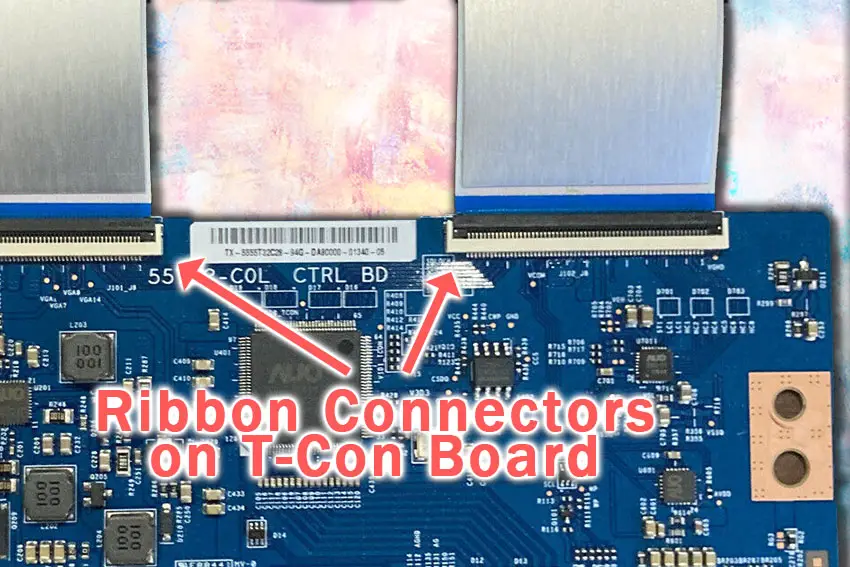
Start by giving everything a good clean, preferably with compressed air or a non-static brush. It’s possible that dust in the connections can block the signal.
Then, you should be able to remove the ribbon-like low voltage differential signaling (LVDS) cables on the T-Con board by pushing the locking cover down and they will then easily come away from the board. Don’t try to force them out without unlocking them first.
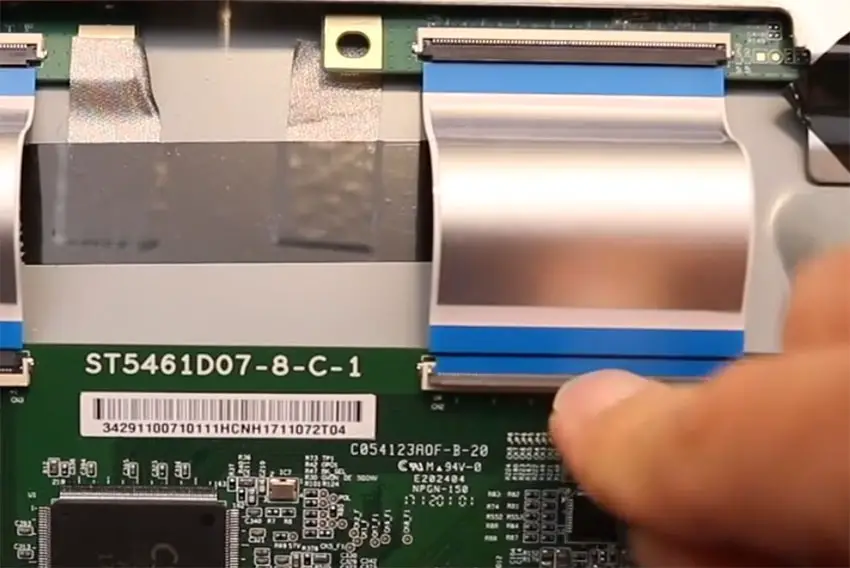
After removing the LVDS cable, take a look at the individual connectors on the ends of the cables, and the connectors in the socket. You are looking for any signs of corrosion, damage, or dust.
The contacts should be a shiny gold or silver color. If they are dull and appear to have a rough, copper-like layer over them, this would indicate oxidation, and therefore a new cable is recommended.
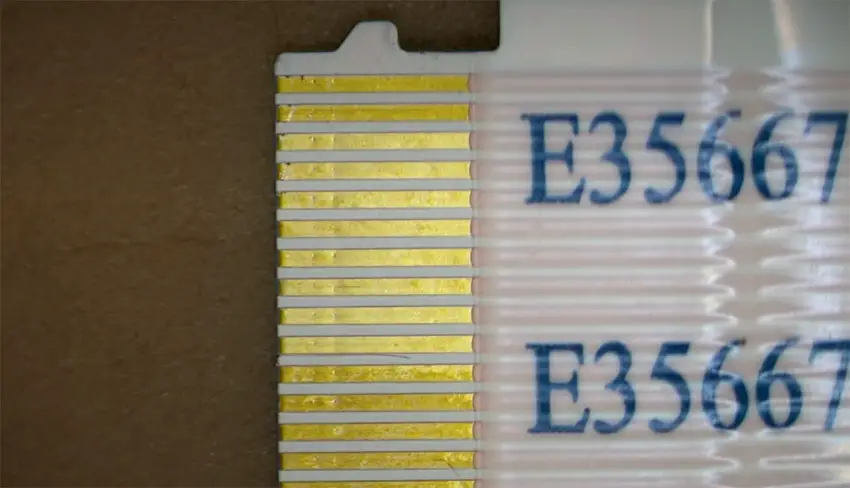
Get your TV back into an upright position, and with one of the LVDS cables connecting the T-Con to the Main Board disconnected, switch your TV back on and see if any picture is there. Disconnect that cable and re-connect the opposite cable.
If your TV is now working with either of the cables connected, then you know the problem is either with your T-Con or Main Boards.
Both T-Con and Main Boards can be replaced for around $30 from eBay.
To get the correct board, note the T-Con / Main Board model number written on the label on the board, and put this into eBay.
If the screen still has a black band across the top half, then you can check the boards themselves for failure, but the most likely cause is a backlight failure, which we will look at next.
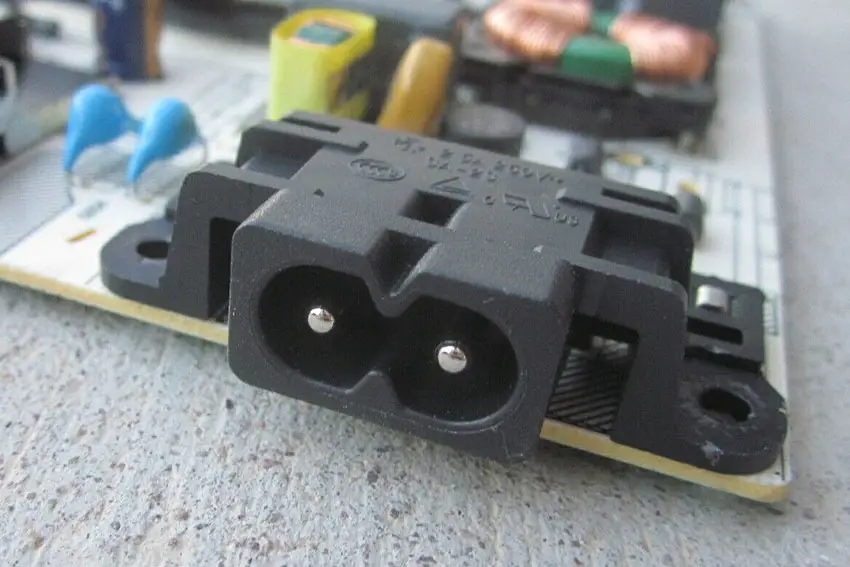
8. Check Your Backlights
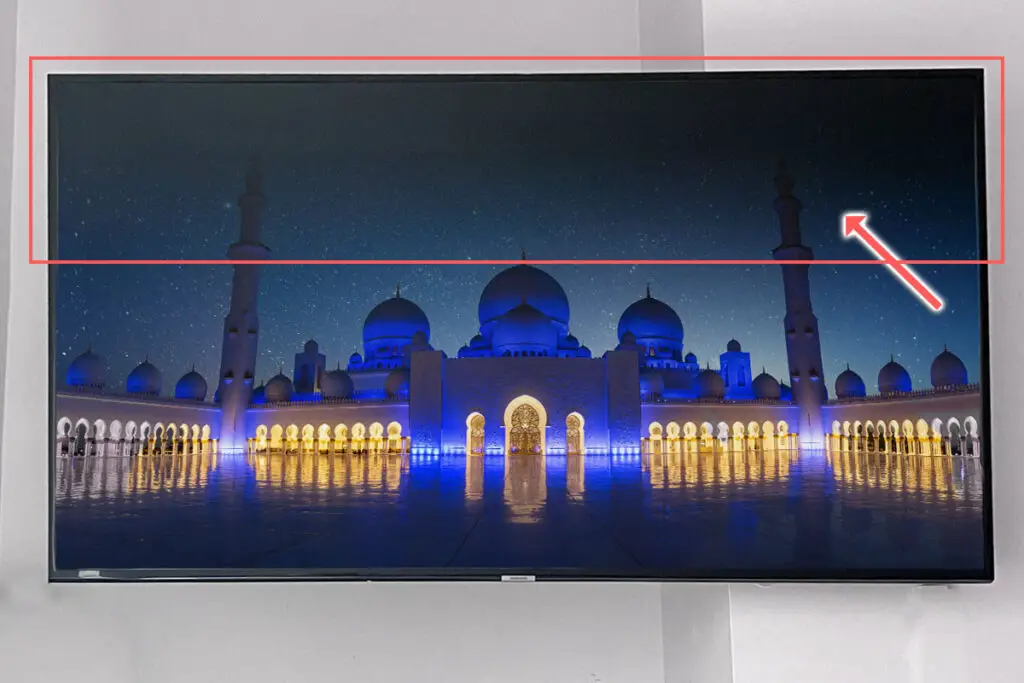
If your Samsung TV develops a dark band on the top half that gets worse over time, then you have a backlight issue.
Backlights on modern Samsung TVs come in LED strips of varying lengths. Older models used lengths that spanned the entire frame of the TV, but due to cost savings, more recent TVs use a set 16″ LED strip which is connected in series for each row to span your TV.
These cold-soldered connectors are a notorious failure point on Samsung TVs but can be easily fixed if you are willing to re-solder a joint yourself.
Equally commonly, the LED backlights themselves can fail. This is due to repeated current overpowering, which over time causes thermal degradation of the LEDs leading to burnout. You can replace any failed LEDs by just removing the entire strip and replacing it.
The problem with fixing the LEDs is that they are located in the most difficult-to-access part of your TV. So if you are not comfortable with a larger repair job, then now is a good time to seek help from a professional.
You need to remove the back panel, remove all of the circuit boards and connectors, then another layer of screws for the front panel, and only when you have fully removed the LCD panel can you get to the backlights.
You will also need a multimeter to test the backlight strips to find out where the problem lies.
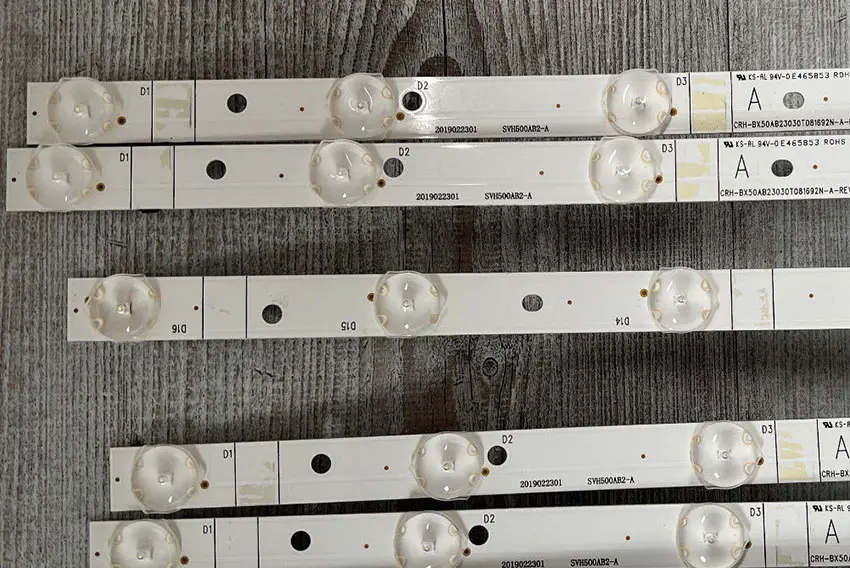
To fix a failed backlight:
- Unplug your TV, hold down the power button, and wait for at least 30 minutes. There are large capacitors in the power board for the backlight and these can hold charge for an extended period of time.
- Place your TV face down on a large table or workbench. Make sure there is nothing that can scratch the screen on your work surface.
- Ground yourself.
- Open your TV by unscrewing the screws in the back panel. It should come apart in two pieces: front and back.
- Put the back panel somewhere out of the way and take a look at the circuit boards that have been revealed.
- You will see a T-Con panel for translating the signal into a TV picture, a power board, and a main board. Any wires or ribbons that are near the edge of the TV should be disconnected, and the three boards will also need to be removed.
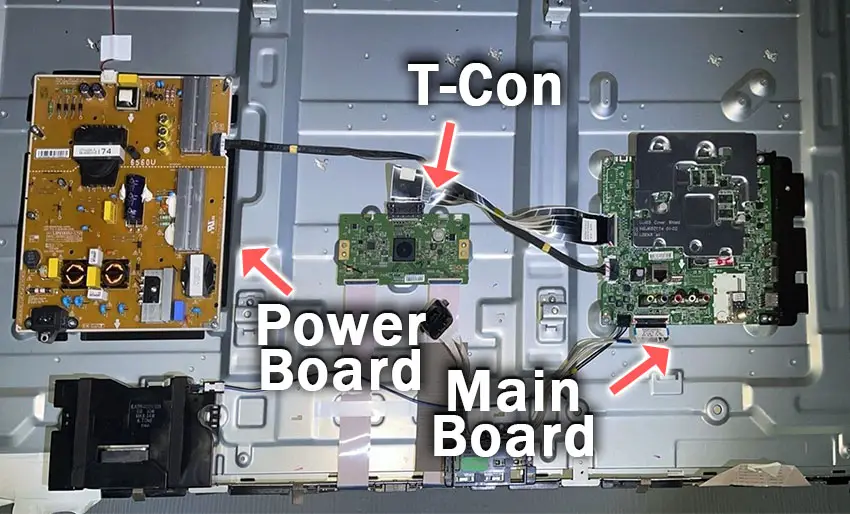
- Then remove the screws around the edge that hold the bezel of the TV.
- With some care, you should be able to remove the bezel and panel, and reveal the TV backlight underneath, which will be in strips of LED lights.
- Use a voltmeter or TV backlight tester to check whether they are working, and replace any failures.
The video below covers checking and replacing the LED backlights, with some additional tips on when you should seek to replace your backlight driver board instead.
It’s also possible that one of the connectors linking the LED strips as they span the width of your TV has failed. This can be fixed by checking the connectors with a multimeter and re-soldering and broken connections. This article has a good study on this.
Samsung TV Support and Warranty
You can check your current warranty status at Samsung’s warranty site.
Unfortunately, warranties typically only last a year unless you have already paid to extend it.
Although you are unlikely to see a dark top half of your screen on a Samsung TV under one year old, this can happen. If so, return your TV under warranty and get it fixed.
You can also try to contact Samsung support directly to see if they can offer any help.
You can use the Samsung support site to help diagnose your problem, but if you are at this stage, then you are better off calling them directly at:
- 1-800-SAMSUNG (726-7864)
They are in the office 7 am – 12 am EST, 7 days a week, but their automated chatbot is available on their site 24/7.
Even if Samsung won’t fix your TV, they might still offer you a discount on a future model if you pester them hard enough! Always worth a try!
Conclusion
- The most common cause of a Samsung TV having a dark band on top is a software glitch caused by the Smart Hub gradient not fading, or a poor HDMI connection.
- You can turn off your Smart Hub and remove any HDMI cables in turn, to diagnose which of these is most likely to be causing it.
- Power cycling your TV and leaving it unplugged for 30 minutes can be a big help in removing the dark band.
- If you’ve ruled out software causes, then check the T-Con cables are properly connected and test your backlights with a multimeter.
If you still are having problems with your TV, then try Samsung support, but otherwise, you will be looking at a new TV.
Read More:
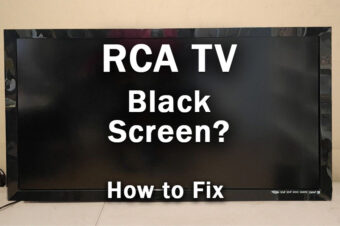

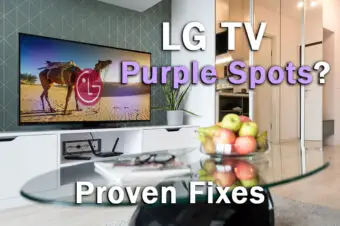
![[FIXED] TCL Roku TV Stuck on Red Screen?](https://www.lapseoftheshutter.com/wp-content/uploads/2021/10/tcl-roku-tv-stuck-on-red-screen-340x226.jpg)
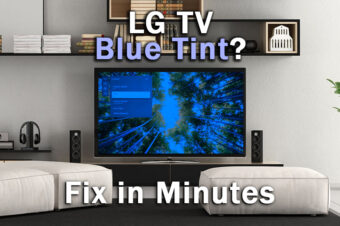

Leave a Reply